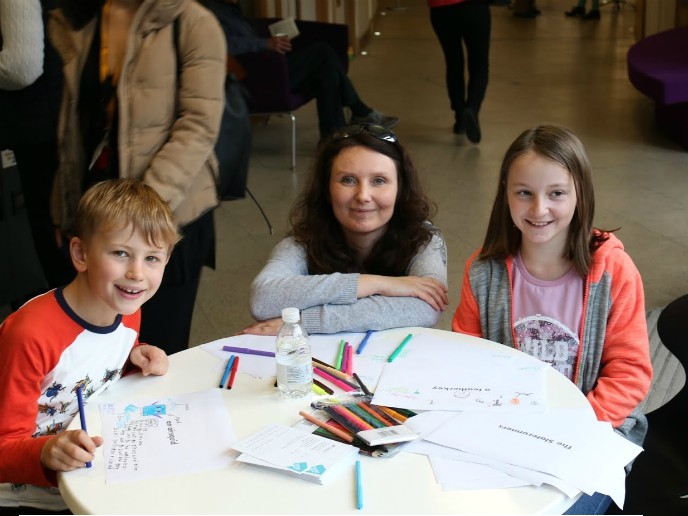Who better to include in children’s literature studies than children themselves?
Utopian representations are often found in literature, including children’s books. The readings and images found in these materials are crucial for transformation at both individual and societal levels. However, regarding young readers, theoretical discussions have mainly focused on the influence of utopian literature on them. To counter this, the ChildAct16 project has pioneered a new approach based on child-adult collaboration. It sought “a better understanding of how utopian literature shapes ideas for preferred futures, how these ideas evolve in readers’ encounters with the materialities of the local environment, and how they call readers into individual and collective action in these environments,” explains MSCA fellow Dr Justyna Deszcz-Tryhubczak. An uncommon yet timely approach To achieve this, ChildAct16 proposed a relational approach to children’s literature studies and the creation of democratic spaces for intergenerational collaboration with young readers around books and reading. Although not commonly applied in children’s literature studies, Dr Deszcz-Tryhubczak stresses the importance of such research as it acknowledges children’s impact on societies. Such a process facilitates collaborative reflection and action as well as joint thinking, and doing that is not only critical but also creative and caring. Children at the research helm The literature chosen for study was China Miéville’s Un Lun Dun. This fantasy novel has a strong conservationist agenda concerning waste and air pollution. Dr Deszcz-Tryhubczak says that once the children received their copies, she was no longer the only organising agent at work. “The children, the book itself, the school, the teachers, the parents and even the weather all affected the flow of the subsequent research process.” The young readers actively contributed to all elements of the research process. They offered input on the research needs and participated in designing the study’s framework and methodology. The young research group was also involved in the development and administration of research tools, and then in an analysis of the findings. Breaking new ground in children’s literature scholarship Joint child-adult dissemination of the results through conference presentations was a core element of the project’s approach. One of ChildAct16’s own undertakings in this regard was co-organising with the University of Cambridge the 2018 international conference on ‘Intergenerational Solidarity in Children’s Literature’. Dr Deszcz-Tryhubczak has published one article in Children's Literature in Education and co-authored another that “is unique and unprecedented in children’s literature studies.” The latter, titled ‘Children’s voices in the Polish canon wars: Participatory research in action’, is the product of a collaboration with another researcher, a primary school teacher and five primary school/junior high school pupils. Other dissemination activities include the presentation of results at the University of Antwerp’s Children’s Literature Summer School and a film adaptation of a fantasy novel for young readers. Project work has also been communicated via social media and in letters to authorities and environmental protection NGOs. The publications “innovatively position the field of children’s literature studies as a site of cross-generational bonds, creating possibilities for a socially impactful inquiry into the culture of childhood.” Importantly, ChildAct16 outcomes could potentially impact policymaking concerning the literature curriculum and, in more general terms, democratic teaching methods. Dr Deszcz-Tryhubczak concludes: “The opening of academia to children’s questions and ideas concerning the research process constitutes further evidence of the validity of children’s literature scholarship practised against the dominating binaries of childhood and adulthood.”
Keywords
ChildAct16, children, children’s literature, literature studies, utopian literature, child-adult collaboration, intergenerational collaboration







